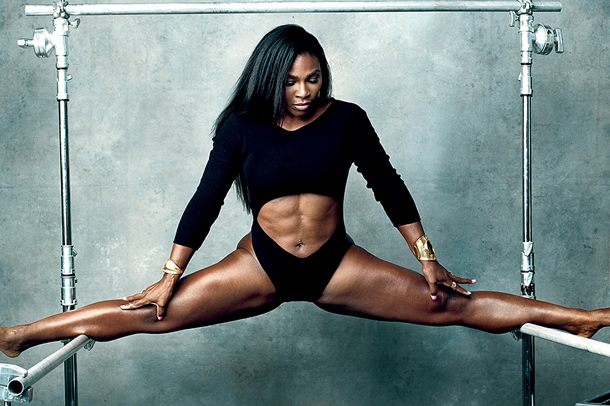myHIN Blog
Category: Health Articles

September 28, 2015
Why aren’t you smiling
Serena Williams’ womanhood has recently been under question. If you google ‘serena williams womanhood', you without a doubt, stumble upon some articles speculating that she is a male due to her amazing body. The body shaming that has surfaced due to this fit African-American Tennis player has without a doubt come at an interesting time, at the peak of her career. It seems as though the media had to discredit her exceptional achievements and question her on every move (including gender and health).
Interestingly enough, many of the gender questions have ended as it has become public knowledge that she has a relationship with Drake, the Canadian actor and rapper. Now that she has a man on her arm, she is somehow now validated as a woman. The presence of a man, or his absence, should not be validating criteria to how feminine a woman is perceived. But because the media has “evidence” of her sexuality, there is no one questioning her womanhood any longer.
It often seems like the media just won’t let Serena live. As a woman, and one who smiles pretty often, it actually grinds my gears when I am asked why I’m not smiling. Most of the time there is some male stranger who thinks they have the authority and the privilege to tell me to smile. I assume this describes the reporter who thought it was reasonable to ask Serena during the press conference why she wasn’t smiling. Unfortunately we live in a society where some members expect you to react in a prescribed way. When you don’t, they assume something must be wrong as the reporter did during the press conference.
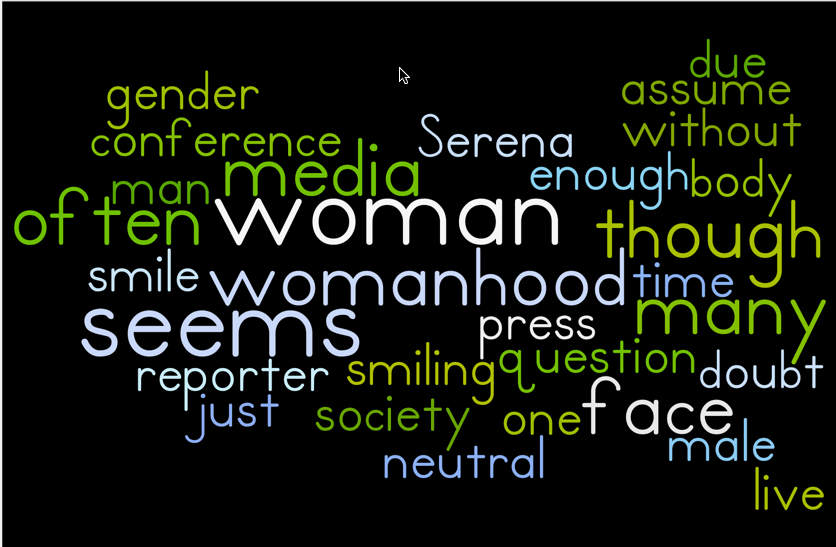
It is as though society unconsciously has a problem when females keep a neutral face. During the recent Apple Event this September, the Adobe Creative Suite presentation showed the ease of being to edit the woman’s face from neutral to a moderate smile. The model’s resting face was not good enough and had to be modified it seems. It often seems as though many women just can’t win. We can only wait for the day when our world is willing to accept that there are many definitions of a woman and all of them are SELF-DEFINED requiring no explanation.
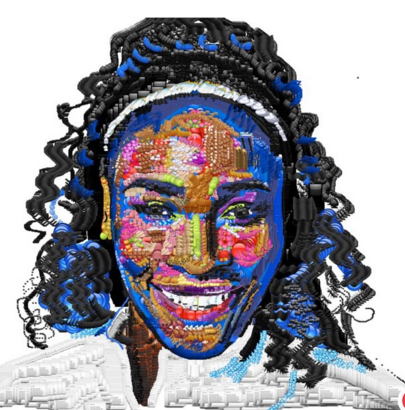
Follow @myhealthimpact on Twitter; see myHealthImpactNetwork.org (Web) and myHealthimpact (Tumblr and YouTube).
Share

September 22, 2015
The Importance of Awareness
It was not until high school that I learned that I held the trait for sickle cell. During my high school athletic years I did not feel significantly impeded by my health status, and even briefly considered playing collegiate football. I however did not make that decision based 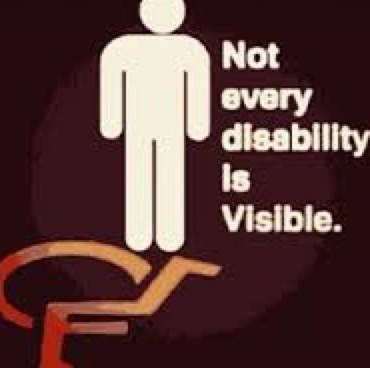 on my status as a carrier for sickle cell, but instead on my passion for football at the time. Losing the last game of my high school career took a toll on my desire to continue playing.
on my status as a carrier for sickle cell, but instead on my passion for football at the time. Losing the last game of my high school career took a toll on my desire to continue playing.
For the most part, I do not think about sickle cell trait, but I recently had an experience that caused me to take precaution. I participated in a retreat that took place in the Rocky Mountains of Colorado. Initially, I was reminded of Ryan Clark, former NFL safety for the Pittsburgh Steelers. Clark had life threatening complications following a game in Denver due to the altitude and dehydration from the game. Following a game against the Denver Broncos, Clark was hospitalized and eventually had his spleen and gall bladder removed. Due to his ailment he lost 30 pounds and was deemed unable to play for the remainder of the season. Although I was not undergoing the same physical exertion as Clark, I was weary of the outcomes of my activities.
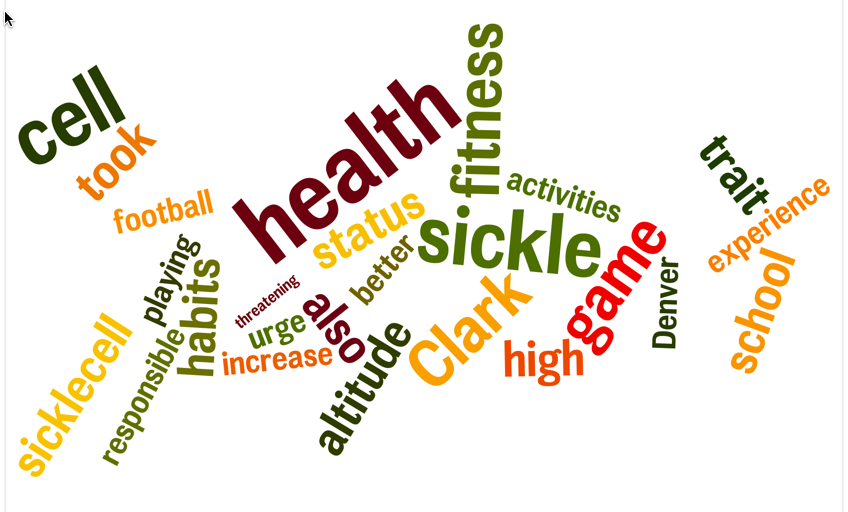
We were given strategies to cope with the change in altitude, all of which I took very seriously. Even with the increase in water consumption, my adjustment to the drastic increase in altitude was slower than my classmates. I found myself having trouble falling asleep and going about daily activities, which was initially frustrating, but also worrisome. I started thinking about my health and taking responsibility for my fitness. I realized that my difficulties, although rooted in the presence of the sickle cell trait, could have been aided by better fitness habits beforehand.
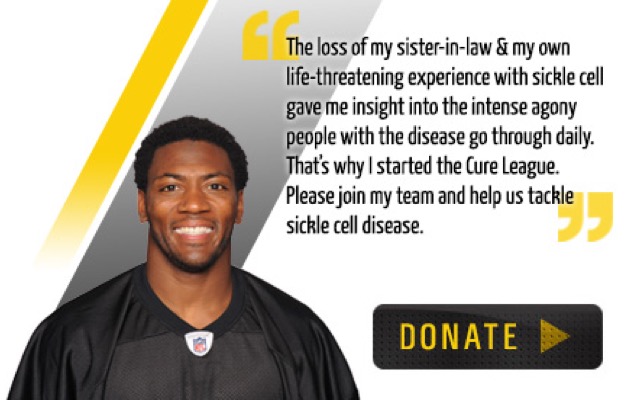 The experience reinforced my belief in the importance of being responsible for one’s own health. I know that I must practice better fitness habits, especially since I intend to work in the medical field. I urge everyone to not only stay responsible for their health by practicing healthy fitness habits, but also be conscious of their health status. As we celebrated the awareness of sickle cell disease, it is also important to urge those around you to be informed of their health in general.
The experience reinforced my belief in the importance of being responsible for one’s own health. I know that I must practice better fitness habits, especially since I intend to work in the medical field. I urge everyone to not only stay responsible for their health by practicing healthy fitness habits, but also be conscious of their health status. As we celebrated the awareness of sickle cell disease, it is also important to urge those around you to be informed of their health in general.
Stay up to date on the latest news and health trends by following @myhealthimpact on Twitter and Tumblr.
#sicklecell
#sicklecellawareness
#sicklecellawareness2015
#fitness
Share

July 15, 2015
Access to Health – A Privilege - and Two Brothers Planning to Collaborate
When I was growing up, eating healthy and physical fitness was something that was talked about fairly often in my household. I played sports throughout my childhood and remained very active. And for the most part, this was the case for everyone in my family. I always had access to a gym, fresh fruits and vegetables. Having the ability to eat healthy is a luxury, and I never really realized how much of a privilege it was until I was exposed to some statistics. “A recent multistate study found that low-income census tracts had half as many supermarkets as wealthy tracts. Another multistate study found that eight percent of African Americans live in a tract with a supermarket, compared to 31 percent of whites” (Bell). I would love to say that a statistic like this really stands out but it doesn’t at all. Minorities, particularly African-Americans, as a community, are extremely disadvantaged when it comes to healthcare as compared to their white counterparts.
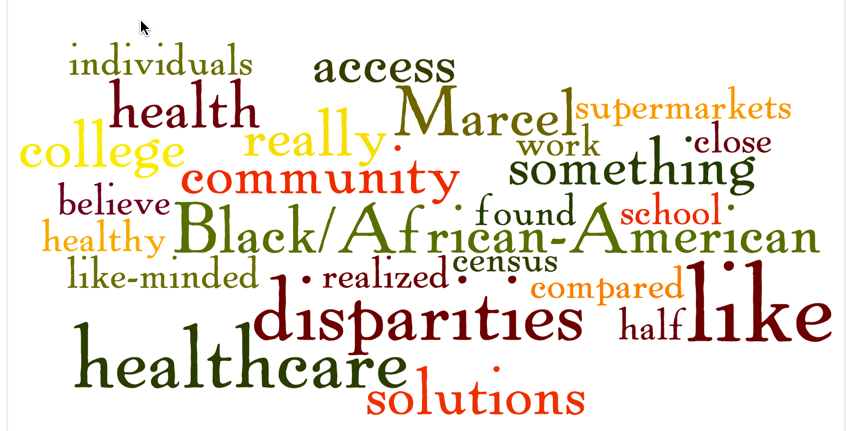
When I first began to understand the notion of health disparities, I was intrigued and motivated. Why should citizens of the United States already a decade and a half into the twenty first century not have access to supermarkets close to their places of residence? Over time, I have realized that this is something I would like to change. Closely approaching my senior year of college, I have had the privilege of completing two ethnographic studies that examine pharmacy and supermarket access as well as examining health related racial disparities. Both of these studies examined the neighborhood of East Liberty in Pittsburgh, Pennsylvania which according to 2013 census data is around 74% Black/African-American.
I feel so personally invested in the discussion of healthcare disparities and healthcare equality for all because I identify with the Black/African-American community. After college ,I would like to further my knowledge on these subjects by pursuing my Masters degree in public health. I believe my future education will give me not only the tools and resources to think of potential solutions to my community’s problems but also allow me to work with other like-minded individuals.
One of the like-minded individuals I hope to work with in the future is Marcel Souffrant. Marcel and I went to high school together and have been close friends since around 2011. He is currently planning to attend medical school following graduation from college in the spring of 2016. In a true collaborative effort, I believe we can both help craft potential solutions to these healthcare disparities that currently plague the Black/African-American community. Two Black/African- American men working together to create solutions to these chronic issues is something I am really beginning to like the sound of. Follow the journey along at @myhealthimpact for this, other health-tech topics and voices of young people like me and Marcel.
Citations
Bell, Judith, Gabriella Mora, Erin Hagan, Victor Rubin, and Allison Karpyn. "Access to Healthy Food and Why It Matters." Thefoodtrust.org. Policy Link, 2013. Web. 10 July 2015. <http://thefoodtrust.org/uploads/media_items/grocerygap.original.pdf>
Share

July 02, 2015
Reshaping the Health Tech Narrative
My January 9, 2015 blog (see Tech-Social Activism) indicated that tech-social activism was “big” in 2014 with a prediction that 2015 would see even greater issues to explore. Six months into 2015, this prediction has surpassed expectations. Here is what dominated the 2014 social activism tech space:
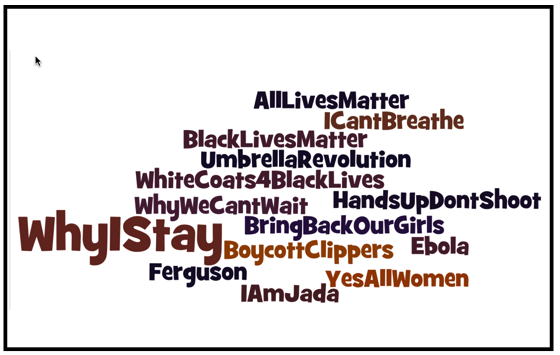
The past few blogs from the myHealthImpactNetwork team has covered these topics and offered interesting perspectives on topics where health meets tech, and this is not absent of the social commentaries that influence daily living. Below is a mash- up of these topics. Check out these blogs on the website. Follow us at @myhealthimpact. Let us hear from you as we work to amply voices and (re)shape the health tech narrative.
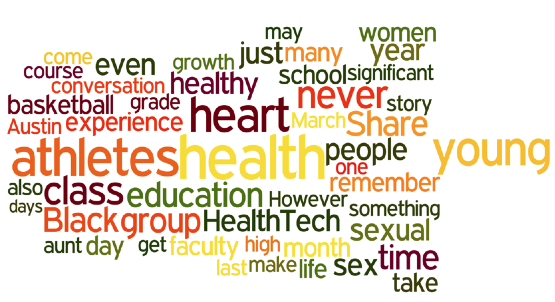
Share

June 18, 2015
Please Understand that’s There’s SOMETHING to Understand
We, as black people, have to watch our every move now. The levels of anxiety and mental stress we endure in our own homes and communities will have everlasting effects on us. I’m conscious on what I wear, what I say, what I do in public, and just my overall image. It’s sad to say, but this isn’t a world where I can be myself outside of my room.
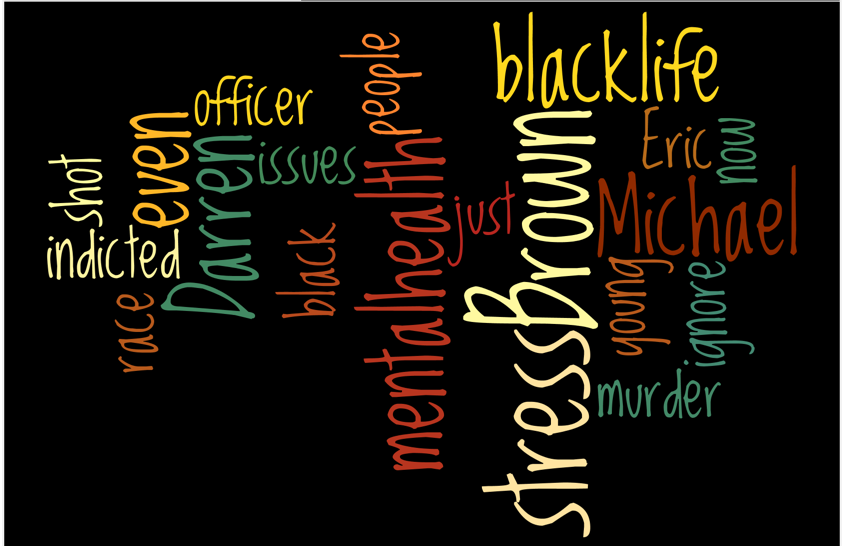
If it wasn’t for Michael Brown, I would have never heard of Ferguson, Missouri. If you’ve been living under a rock or choose to deliberately not hear the story, here it is. A 19 year old black young man was shot and killed in the middle of the street by law enforcement. Not only was the boy unarmed, but was shot at 12 times. They levels of unanswered questions surrounding the case are baffling. After Brown’s death, Darren Wilson, the officer who murdered Brown, somehow went into hiding. Darren WIlson wasn’t indicted. The transcript was published on the internet and his description of Michael Brown was horrendous. Eric Garner’s murder wasn’t indicted either. The Supreme Court decided not to indict Eric Garner’s murder after video evidence of the officer using an illegal chokehold.
There have now been protests around the WORLD in support of Michael Brown and Darren Wilson, not forgetting all the other wrongfully slain brothers and sister in the recent days and even years. Then, there is Baltimore with the media commentaries depicting the community in ways that only causes even more stress.

Why do we have to die so young? Why do I have to feel like a suspect when I’m just walking around from place to place? Why are there people that don’t understand that there’s something to understand about race issues in America. It’s scientifically proven that ignoring race issues don’t make them disappear. That’s doesn’t even make sense when you think about it. You can’t ignore your work and expect to get it done. Can you? You can’t ignore your hunger and expect to be full?
Share

June 09, 2015
Growth
The key to maintaining a long relationship is keeping it healthy. Think of it as the same way you would treat a plant. You have to water it, nurture it, and give it some room to grow. Growth being the most important. Your significant other should complement your growth and you should do the same for them. This means encouraging one another to pursue those dreams and maintain high goals.
From my personal experience, it can be somewhat challenging if those dreams take your significant other to another side of the country. At the end of the day you have to put yourself in their shoes and realize that you would like the same support in that situation.
Relationships can be hard; that’s no secret. However, recognizing how the growth of the relationship affects the individuals is amazing. Growing as one and yet still two individuals is the best part of it all.
Psychology Today gives a couple healthy nuggets to maintaining a healthy relationship. I’ll leave you all with a couple that resonated with me:
- Give what you want to get.
- Successful relationships take work.
- Find a way to become and stay best friends.
Share

May 03, 2015
What Ever Happened To Your Favorite Players?
As you can see below, both rising stars and professional athletes are dying from heart disease each and everyday! This interactive infographic shows the fate of athletes who died, retired or was forced to have surgery as a result of their heart condition. It's really disheartening because a lot these professionals died early on affecting not just fans but their families. Let's not only remember the names on the back of a jerseys but also use their story to identify heart diesase in young athletes and prevent misdiagnosis from so many lives short.
Tweet us @myhealthimpact to let us know if any of the players on this shocked you!
Share

April 30, 2015
Heart Health in Young Athletes
 When we are young we are told and reminded of the importance of exercise and why we need to remain active. My parents were sure to emphasize the benefits of physical activity and to this day, continue to do so. This is why it often surprises me when I hear of professional athletes passing away from heart attacks and cardiovascular related health issues. These are people whose career is centered on remaining active and physically fit, but there is no certainty that these habits remained after they’re playing careers came to an end. More striking however is the seemingly prevalent occurrence of young athletes, at the high school and college age, who have suddenly passed due to cardiac arrest. It is estimated by the American Academy of Pediatrics that “2,000 people under the age of 25 die from sudden cardiac arrest in the United States every year.” This is a striking figure because this encompasses a group of young adults who generally, are at the peak of their physical fitness.
When we are young we are told and reminded of the importance of exercise and why we need to remain active. My parents were sure to emphasize the benefits of physical activity and to this day, continue to do so. This is why it often surprises me when I hear of professional athletes passing away from heart attacks and cardiovascular related health issues. These are people whose career is centered on remaining active and physically fit, but there is no certainty that these habits remained after they’re playing careers came to an end. More striking however is the seemingly prevalent occurrence of young athletes, at the high school and college age, who have suddenly passed due to cardiac arrest. It is estimated by the American Academy of Pediatrics that “2,000 people under the age of 25 die from sudden cardiac arrest in the United States every year.” This is a striking figure because this encompasses a group of young adults who generally, are at the peak of their physical fitness.
Perhaps one of the more prominent stories in the last year is the story of Isaiah Austin. Austin, a former basketball player at Baylor University, declared himself eligible for the NBA Draft last year. After the plethora of tests conducted by the National Basketball Association it was discovered that he could never play competitive basketball again, four days before the draft. Isaiah Austin suffered from Marfan syndrome, which caused an enlargement of his aorta. The combination of aortic enlargement and extreme physical exertion, as he would be subject to as a professional basketball player, made him susceptible to a rupture of his heart. This was the exact fate of Flo Hyman, an Olympic volleyball player, who passed away on the court due to a rupture of her aorta in 1986.
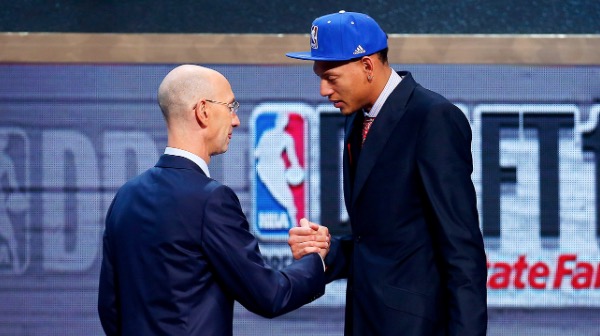 The story of Isaiah Austin generated some, but not a lot of conversation about the health of young athletes. Austin had been living with this condition and could have met his fate at any point during his athletic career at Baylor University. Fortunately this did not happen, but many student-athletes do not have the same luck. Every year there are stories of high school and college students who collapse on the athletic field, and most of these cases of sudden cardiac arrest are due to structural defects of the heart. This begs many to ask the question, should we increase the testing of our amateur athletes before they can play? Had it not been for the depth at which the National Basketball Association looks into the health of their players, the discovery of Isaiah Austin’s aortic enlargement may not have come until it was too late.
The story of Isaiah Austin generated some, but not a lot of conversation about the health of young athletes. Austin had been living with this condition and could have met his fate at any point during his athletic career at Baylor University. Fortunately this did not happen, but many student-athletes do not have the same luck. Every year there are stories of high school and college students who collapse on the athletic field, and most of these cases of sudden cardiac arrest are due to structural defects of the heart. This begs many to ask the question, should we increase the testing of our amateur athletes before they can play? Had it not been for the depth at which the National Basketball Association looks into the health of their players, the discovery of Isaiah Austin’s aortic enlargement may not have come until it was too late.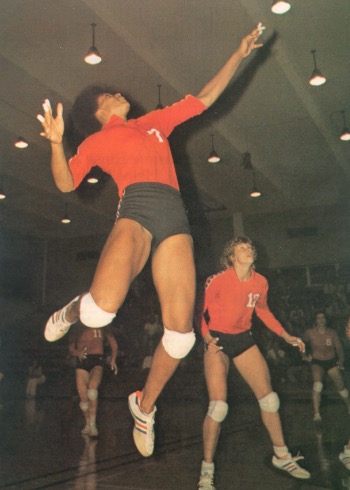
The message of remaining healthy and maintaining regular exercise is important and effective. We must also include the message to be aware and responsible for our health. School systems, colleges, and doctor’s offices should encourage student athletes and their families to become aware of their health. The opportunity to curtail the sudden death of student-athletes is available. These institutions have the ability to provide families with a stronger understanding of their health, and it should be capitalized on. Follow @myHealthimpact for more on #Health #Tech #Culture and views of #youngPeople. See us on YouTube, and follow us on Tumblr.
Share
April 09, 2015
Sexual Health Education
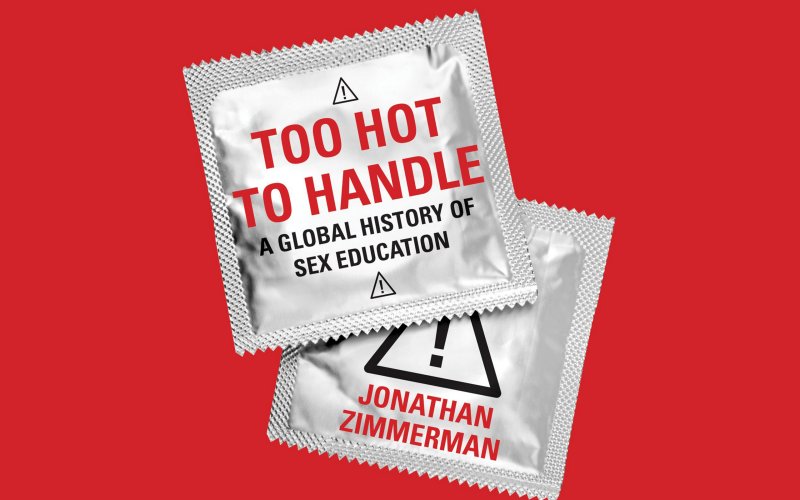
Denae
It was in elementary school that we had our first sexual education course. It was either 5th or 6th grade that we marched into my Science Teacher’s room to hear the real truth about the birds and the bees. Of course, our parents had to sign a permission slip in order for us to get the life lesson. The funny thing is I barely remember anything about that class. All I remember is that we sat down we talked about different types of condoms, pregnancy, and maybe chromosomes. My parents never had ‘The Talk’ with my siblings, and I so this class was the closest thing to it.
It wasn’t until I had a Sex Education class my ninth grade year in High School that I had to witness the miracle of child birth. In this class, we watched videos and talked about the entire sexual reproductive system. After that, there were no other topics on that until I got to college.
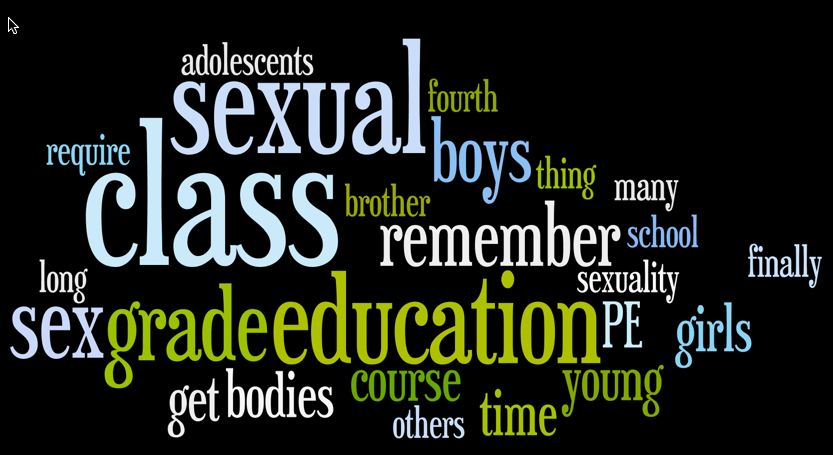
Marcel
From a very young age, I was made aware that there were differences between “boys” and “girls”. I faintly remember a time in second or third grade where they took each student in the class and pointed to two dolls, mentioning there were differences and that it was inappropriate to touch certain areas of each doll. But this was not a true introduction to human sexuality. I took had a 5th grade class where we learning about family living, ethical behavior, and human sexuality. It was here that I learned of abstinence and its importance in remaining healthy. When I entered high school, I finally learned about contraception, STDs and STIs, but for many this is much too late.
I have the great fortune of having a psychotherapist as a mother. She has worked with adolescents for a long majority of her career, and has always been very open with my brother and me about what is and is not appropriate. My sexual education may have begun earlier than many, but my mother’s experience with adolescents who had experienced sexual violence or had committed acts of sexual violence against others forced her hand. My brother and I were taught early on about our bodies, respecting ourselves, and showing the utmost respect for others.
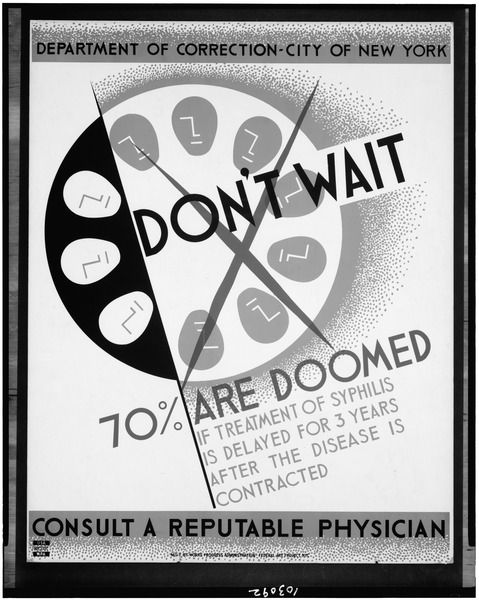
KaMar
I remember going to my PE class in the fourth grade excited to finally let off some steam and play with my friends. It was Friday which meant free day aka everyone grab a basketball and find the nearest hoop. However, today would be different as my PE teacher split up the group into boys and girls. The girls were taken to another classroom while the boys were instructed to sit on the gymnasium floor. Up above was a rolling TV cart and my PE Teacher explaining to the boys group that he forgot to mention during the last class that he had to teach us about how our bodies change as we get older. Naturally, we weren’t trying to hear it, but we sat and listened hoping we would get just 5 minutes at the end of class to throw up a few baskets.
We ended up watching a long and boring film that never spoke about how our bodies changed over time but rather depicted various sex organs, including their scientific name, while narrated in a robotic tone. Thinking back to the actual footage, I cannot understand how something so incredibly stale could be shown to fourth graders! At a time where young students gravitate towards shows on Disney, Nickelodeon, PBS, and other children focused networks, it’s mind boggling to note this film as my introduction into the sexual reproduction cycle. I am not alone on this issue as sex education is anything but standardized. At present, only 22 states require sex education in schools, and only 19 require that sex education is medically, technically or factually accurate. With those numbers, I wonder if sex education is meant to teach young minds about sexual health or just a course with a checkbox?
Share

March 30, 2015
Thank You - Women’s History Month
When I was younger the month of March filled me with extreme amounts of joy. I was able to look forward to the birthdays of my paternal grandmother, my cousin, my aunt, my father, and even myself, all in the same month. Recently, this sentiment has changed. I still feel joy and excitement during this month, but accompanied with these emotions has come reflection. A few weeks ago, I celebrated my 21st birthday, and of course, it was celebrated with the fanfare one would expect for such a milestone. Even with the celebrating, I spent a significant amount of time to myself, thinking about where I was, the company I was with, and the influences on my life to this point. 
The summer after my freshman year at NC State, I was awarded a grant to spend five weeks in Haiti, through the Park Scholarships. In the grant I explained that I wanted to gain experience in the administration of healthcare in a developing country, but to also experience significant cultural immersion in my father’s country of birth. My aunt at the time was still living in Haiti, and assisted with my in-country arrangements. My family accompanied me for the first week, and my father spent an additional week in the country before returning to North Carolina. The last three weeks of my time in Haiti I spent learning, intensively. The experience I gained from the hospital was tremendous, but the wealth of knowledge I gained from my aunt was priceless.
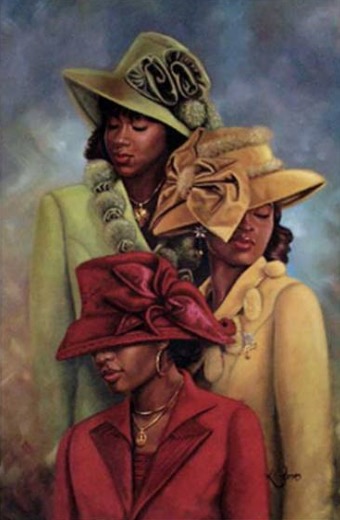 My aunt and I spent countless hours talking about my life and hers, the places she’d traveled, the people she met, the beauty in simplicity, and what is important in our lives. We began to discuss my next visit to Haiti and how to establish a sustainable trip for students who are interested in the experience. Unfortunately, this would never come to fruition. My aunt passed away the following March, the day after my birthday and two days before hers, after a hard-fought battle with cancer. With my aunt’s passing came reflection and insight. The importance of love, to not take people for granted, and to crystallize the relationships I have while also fostering new ones, gradually came to me as integral parts of life. I thought of my maternal grandmother, who was present at each of her grandchildren’s births, and has never missed a birthday since, my paternal grandmother whose mannerisms and love I remember to this day, and my mother who reminded me just today that she “never misses a beat.” These relationships have played a powerful role in my growth, and continue to shape my life.
My aunt and I spent countless hours talking about my life and hers, the places she’d traveled, the people she met, the beauty in simplicity, and what is important in our lives. We began to discuss my next visit to Haiti and how to establish a sustainable trip for students who are interested in the experience. Unfortunately, this would never come to fruition. My aunt passed away the following March, the day after my birthday and two days before hers, after a hard-fought battle with cancer. With my aunt’s passing came reflection and insight. The importance of love, to not take people for granted, and to crystallize the relationships I have while also fostering new ones, gradually came to me as integral parts of life. I thought of my maternal grandmother, who was present at each of her grandchildren’s births, and has never missed a birthday since, my paternal grandmother whose mannerisms and love I remember to this day, and my mother who reminded me just today that she “never misses a beat.” These relationships have played a powerful role in my growth, and continue to shape my life.
In recognition of Women’s History Month on this last day of March 2015, I celebrate these women. Their impact on me has yet to be fully realized, but it is already significant. The love I have for them is overwhelming, and I am thankful for that.
#WomensHistoryMonth #WHM2015
Follow us at @myhealthimpact.
Share
Page 2 of 7 pages < 1 2 3 4 > Last ›
In Partnership with: Poole College of Management, College of Humanities and Social Sciences, National Science Foundation, Penn State
Take Action, Get Tested: Find Your Local Testing Center Why Get Tested?
